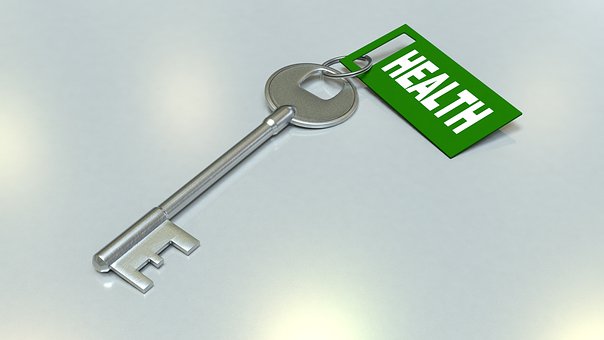Caregiving is a topic many (most) will or have faced in life. Long distance caregiving adds an additional element to the equation. Caregiving resources have developed quite a bit over the years. Knowing about and using resources when you need help with long distance and/or local caregiving is why I’m writing this post today.

State by State Resources
*Resources vary by state* If you know what’s available where you live, the same may not apply in other states. Here are some sources to help you find resources in your state.
- Click on your state to see resources AARP has compiled: https://www.aarp.org/caregiving/local/info-2021/state-caregiver-resources.html
- CDC provides resources here: https://www.cdc.gov/aging/caregiving/resources.htm
- USA.gov lists emotional and task support resources for caregivers of a parent, spouse, or child with special needs here: https://www.usa.gov/disability-caregiver
- The FCA (Family Caregiver Alliance) provides a state-by-state tool to help family caregivers locate public, nonprofit, and private programs and services nearest their loved one—whether they are living at home or in a residential facility. Resources include government health and disability programs, legal resources, disease-specific organizations and more: https://www.caregiver.org/connecting-caregivers/services-by-state/?state=alabama
- Health and Human Services (HHS) provides resources here: https://www.hhs.gov/programs/providers-and-facilities/resources-for-caregivers/index.html
- National Family Caregiver Support Program (NFCSP) provides resources to states and territories based on their share of the population over 70. Check here to see what’s available near you: https://www.caregiving.org/resources/
Local and Long Distance Caregiving
Caregiving is a big job and involves a commitment. Whether you are local or long distance, it’s not easy for anyone. When you’re living away from a loved one who requires additional help, let’s go beyond the resources listed above. Here is some practical advice I’ve learned from personal experiences.

What Authority Do You Have – Health?
Being a family member, friend, colleague does not automatically give you the authority to speak for, make decisions for, write checks for, etc. for anyone in your care. This is when Power(s) of Attorney are needed.
Power(s) of Attorney apply only when someone is living and unable to function fully. There are different Power of Attorney documents for different facets of your life: health, finances, general, special needs, etc. The types vary by your state of residence. If you are named as a Power of Attorney for someone, their state of residence documents will apply.
In the case of medical decisions and discussions with someone’s primary care physician, let’s talk “business”. Have you been named on HIPPA documents so the doctor has the authority to speak to you? And, FYI if the person you are caring for is hospitalized, the hospital often has HIPPA documents too.
If you are calling in from out of state or out of country to check on a loved one, you may be asked about the Power of Attorney and/or HIPPA. From personal experience, I used to keep a PDF copy of the Power(s) of Attorney that I could email or text in case I was asked for it.
When medical situations occur suddenly and you are not local, I found it helpful to explain to the hospital staff that our family wasn’t nearby. Often, they deal with everyone locally who are able to be onsite within a short time. Hospital release plans often occur with little notice. Knowing local resources to help is so important.
Help the local medical professionals help you. During hospitalization, offer to coordinate status update meetings with the medical staff via teleconference, ask how best to call for updates, provide alternate ways for them to contact you, let them know if/when you’ll be able to arrive on-site, and ask them what they need.

What Authority Do You Have – $$?
In the case of money matters, having the authority also involves having a Power of Attorney. This type of Power of Attorney provides you the authority to take care of financial matters for a loved one who isn’t able to take care of this any longer. Personally, this Power of Attorney allowed me to pay bills online while I was living out of country, obtain in-home care services when needed and ultimately sell our family home.
Plan Ahead
There are several variables that may come into play while you’re away from people that matter to you. Especially when health situations happen fast. You may be asked to provide information about your loved one. Could you provide this information if needed?
- The contact information for the person’s medical personnel when you have been named in any role (i.e., Power of Attorney, or HIPPA designee to receive information)
- Previous surgeries or injuries?
- Blood type?
- Pre-existing conditions?
- Medications taken?
- Allergies?
- Are there any other special conditions of importance?
- Health Insurance Policies?
Now think about $$, do you know how to take care of financial matters such as housing, utilities, bills? What about debit/credit cards and online bills?
Make sure you know what you need to know and have conversations that many prefer to ignore. Whether local or long distance, caregiving responsibilities are a big deal. And while we’re on the topic, consider you and your preferences about caregiving for you 💗
Life brings many surprises. When it comes to surprises that impact us and those we love, I am an advocate for being prepared.
This means having the information and authority to do what’s needed in the moment. Reach out anytime by email to let me know questions pertinent to you/yours: Lynn@thelivingplanner.com.
If you’d like additional information, my general website is: https://thelivingplanner.com and my online courses/resources will give you an idea of what I offer to assist people, pets and businesses. https://courses.thelivingplanner.com
For those who are fathers and/or have fathers, Happy Father’s Day — Lynn
#LifeHacks #CareForPeopleCareForBusiness
